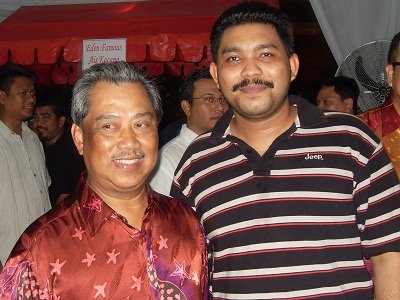Distinguished Professor AB Shamsul, who was recently at the Malaysia and Singapore 2013 Update has an interesting article over at the East Asia Forum, arguing Malaysians are generally the proverbial case of “barking dogs don’t bite” or as Professor Shamsul puts it eloquently, “tongue wagging instead of machete wielding.”
Professor AB notes that:
Yet conflict persists in Malaysia, it has merely turned non-violent. This continuity is because of the inherent contradictions that shape the social dynamics of Malaysian society. These non-violent, mostly verbal conflicts are generated by deep-seated grievances, prejudices and stereotypes.
Many are of the opinion that it is appropriate to label the verbal, non-violent conflict among Malaysians as ‘suka bertikam lidah, tidak berparangan’ (prefer tongue wagging instead of machete wielding). ‘Bertikam lidah’ (literally ‘tongue fighting’) can be seen and heard everyday in Malaysia in various forms, in the mass media and at the local coffee shops. The continuous open and public ‘tongue fighting’ or ‘talk conflict’ can be viewed as an attention-seeking phenomenon that, in turn, begets bargaining and negotiations in order to find amicable solutions to any unresolved issue at hand.
The seven ‘major axes of contradictions’ identified by research as being articulated through the ‘talk conflict’ are ethnicity, religion, social class, education, urban–rural identity, gender and generation (young–old). They are not mutually exclusive – one source of conflict can generate and/or build on another. It is the ethnic contradiction that everyone sees immediately because everyone belongs to an ethnic group and, to a certain extent, therefore, the level of ‘ethnic consciousness’ is quite high.
While the above factors do contribute to conflicts, it raises two important question which is crucial to Malaysia’s continued viability. Firstly, it is important to identify who (which social group or actor) is the main source of conflicts in Malaysia. Secondly, what role does the state play when conflicts do occur between citizens? Is the state acting as an honest broker when horizontal conflicts occur.
 Facebook
Facebook  Twitter
Twitter  Soundcloud
Soundcloud  Youtube
Youtube  Rss
Rss 